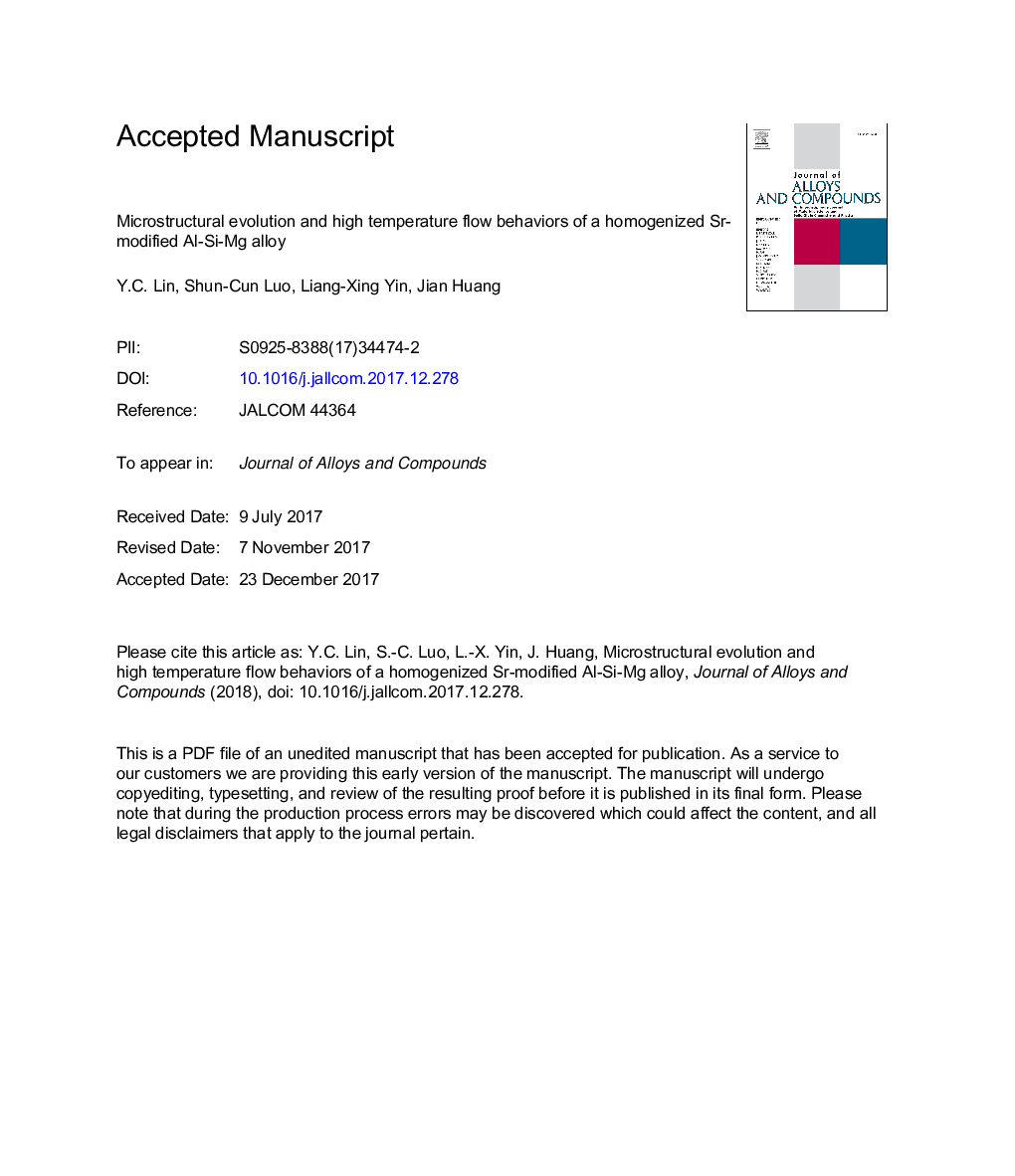| Article ID | Journal | Published Year | Pages | File Type |
|---|---|---|---|---|
| 7994111 | Journal of Alloys and Compounds | 2018 | 22 Pages |
Abstract
Hot compression experiments are performed to study the flow characteristics of a homogenized Sr-modified Al-Si-Mg alloy at the temperatures of 300-420â¯Â°C and strain rates of 0.01-10â¯sâ1. It is found that the deformed grains and Si-containing dispersoids clusters in the matrix are elongated, and incomplete DRX is discovered on the elongated boundaries at high deformation temperatures. The non-uniform distribution of Si-containing dispersoids, soft dispersoid free zones (DFZs) and fragmentation of plate-shaped phases may cause the flow instability at high strain rates. The Si morphology in the homogenized state can be further modified by the subsequent thermo-mechanical deformation. Moreover, the flow stress first rises to the peak with the increase of strain because of strain hardening, and then slowly declines with the further straining owing to the occurrence of incomplete DRX and coarsening of Si-containing dispersoids. The high activation energy is closely associated with the dislocations pinning from Si-containing dispersoids. Additionally, taking the coupling impacts of temperature, strain and strain rate into consideration, an extended phenomenological model compensating softening effects is developed to depict the strain hardening behavior, as well as dynamic softening characteristic. The developed model is validated by the experimental results, and can be applied to accurately predict the flow stresses of the studied Al-Si-Mg alloy during high temperature deformation.
Related Topics
Physical Sciences and Engineering
Materials Science
Metals and Alloys
Authors
Y.C. Lin, Shun-Cun Luo, Liang-Xing Yin, Jian Huang,
